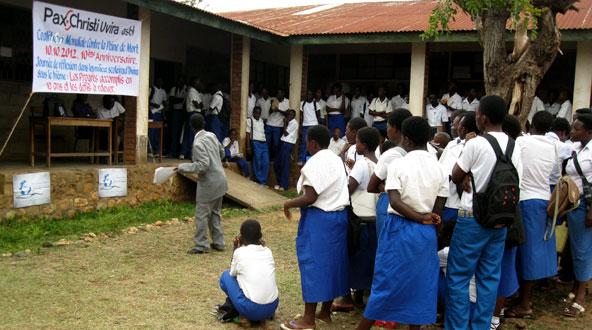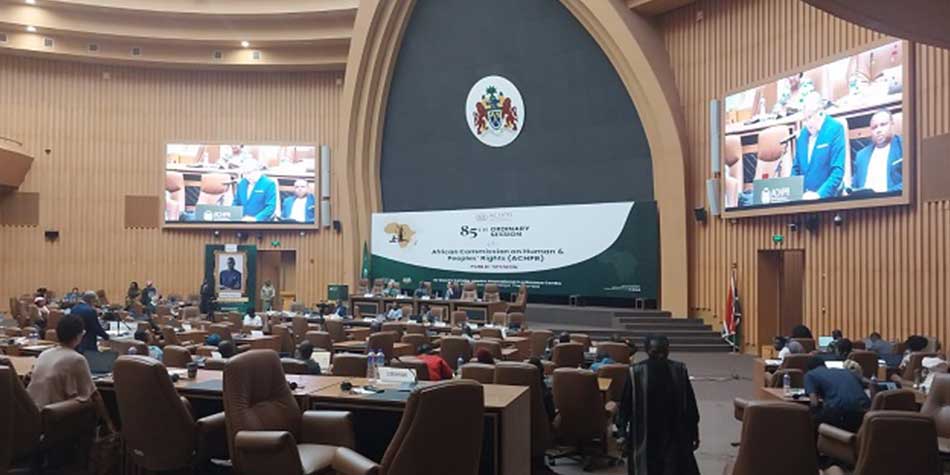
Thousands of abolitionists take action for a better world
Abolitionists worldwide began to raise awareness for the 10th World Day Against the Death Penalty early in the week.
The “Posters for Tomorrow” exhibition continued to tour Asia and South Africa in partnership with several World Coalition member organizations.
On Tuesday night, French Foreign Affairs Minister Laurent Fabius committed to making abolition a priority of his country’s diplomacy across the world. He said: “Not only does the law lose no force in refusing to kill, but on the contrary, by excluding death from its scope, it reinforces the ban on killing that should be the fundamental rule everywhere.”
On that occasion, lawyers, diplomats and activists gathered in Paris to discuss past and upcoming action for abolition.
Progress towards abolition contrasted with Iraq situation
This was in line with the theme of the 10th World Day, which focused on progress achieved over the past decade, when one third of countries still carrying out executions ended that practice, and on the challenges ahead, especially in a small number of countries where the use of the death penalty is increasing.
An animation produced by Amnesty International for the World Day illustrates those trends.
The US Supreme Court reminded abolitionists of the work remaining to be done when it rejected Jonathan Green’s final appeal on World Day. The Texas death row inmate was executed later in the night despite grave doubts about his mental fitness to be held criminally responsible.
Iraq is one of the countries where the number of executions is rising. The Al-Rafidain Centre for Human Rights held a meeting of Iraqi abolitionists in Baghdad with support from Together Against the Death Penalty and the French Institute there.
Members of the Iraqi Coalition Against the Death Penalty are looking for a strategy to counter the sharp increase in the use of capital punishment in the country, which was also criticized by Human Rights Watch in a World Day statement.
100 take part in Montreal “die-in”
Numerous events took place across Africa, including conferences and film screenings from Senegal to Botswana and from Benin to Uganda, and educational events in the schools of eastern DR Congo by Pax Christi Uvira (photo above).
In Europe and in America, activists took position in universities, on markets and on public squares, including in Montreal where 100 people gathered by Amnesty International simulated their death as part of a spectacular “die-in” (slideshow below).
Action by abolitionists made its way into media outlets worldwide, from Bahrain’s Gulf News to the Los Angeles Daily News, which endorsed Proposition 34 –a referendum issue to abolish the death penalty in California, to be voted on at the same time as the US election on 6 November.
After the World Day, the momentum is still there: the first Regional Congress Against the Death Penlaty in the Middle-East and North Africa will take place in Morocco between 18-20 October, and around 1,500 cities worldwide are preparing to light up their monuments on 30 November for “Cities for Life – Cities Against the Death Penalty”.







